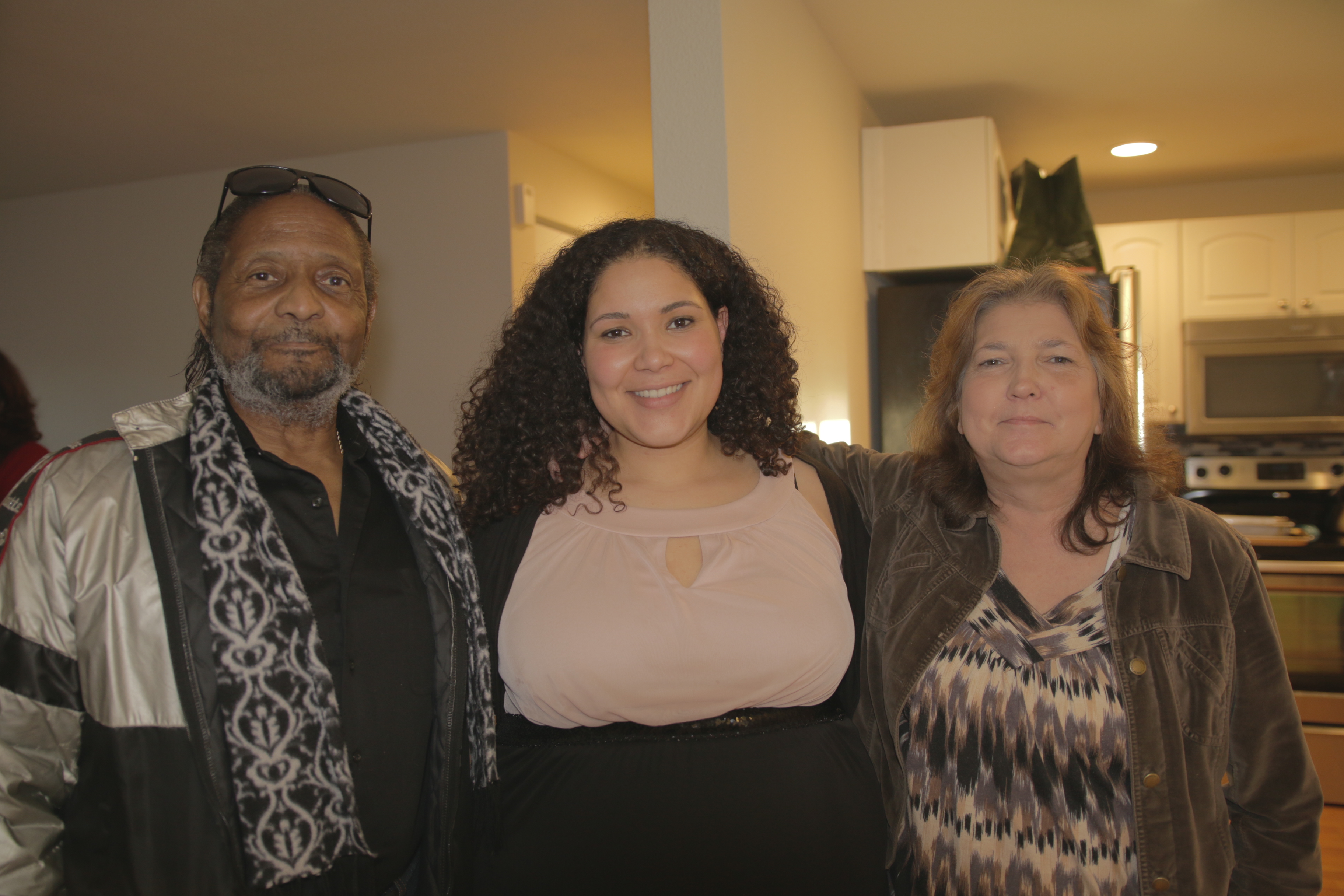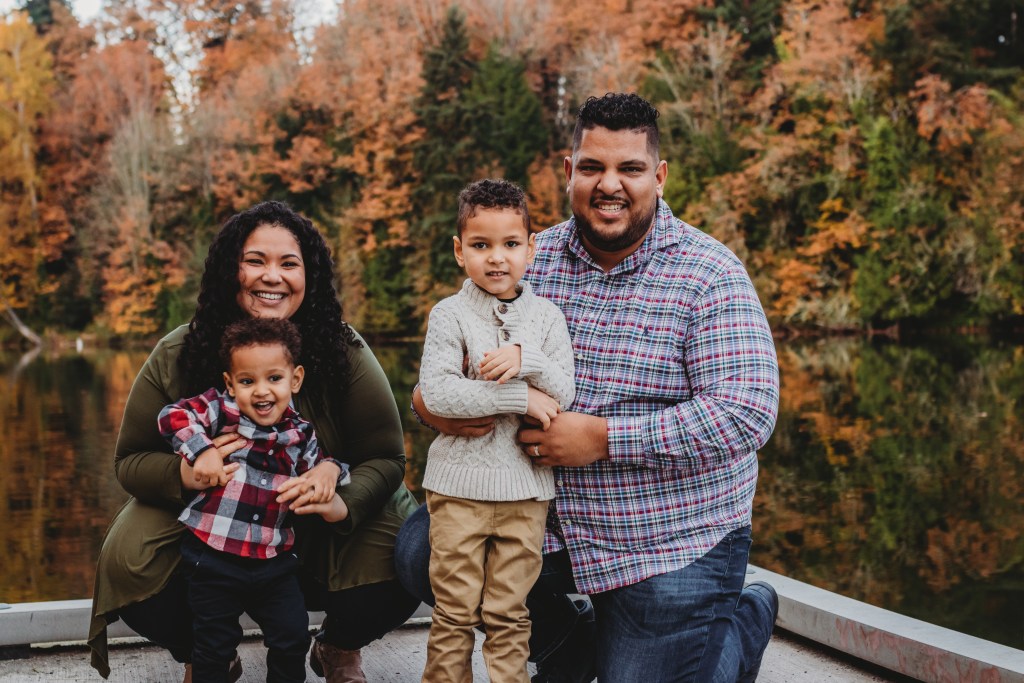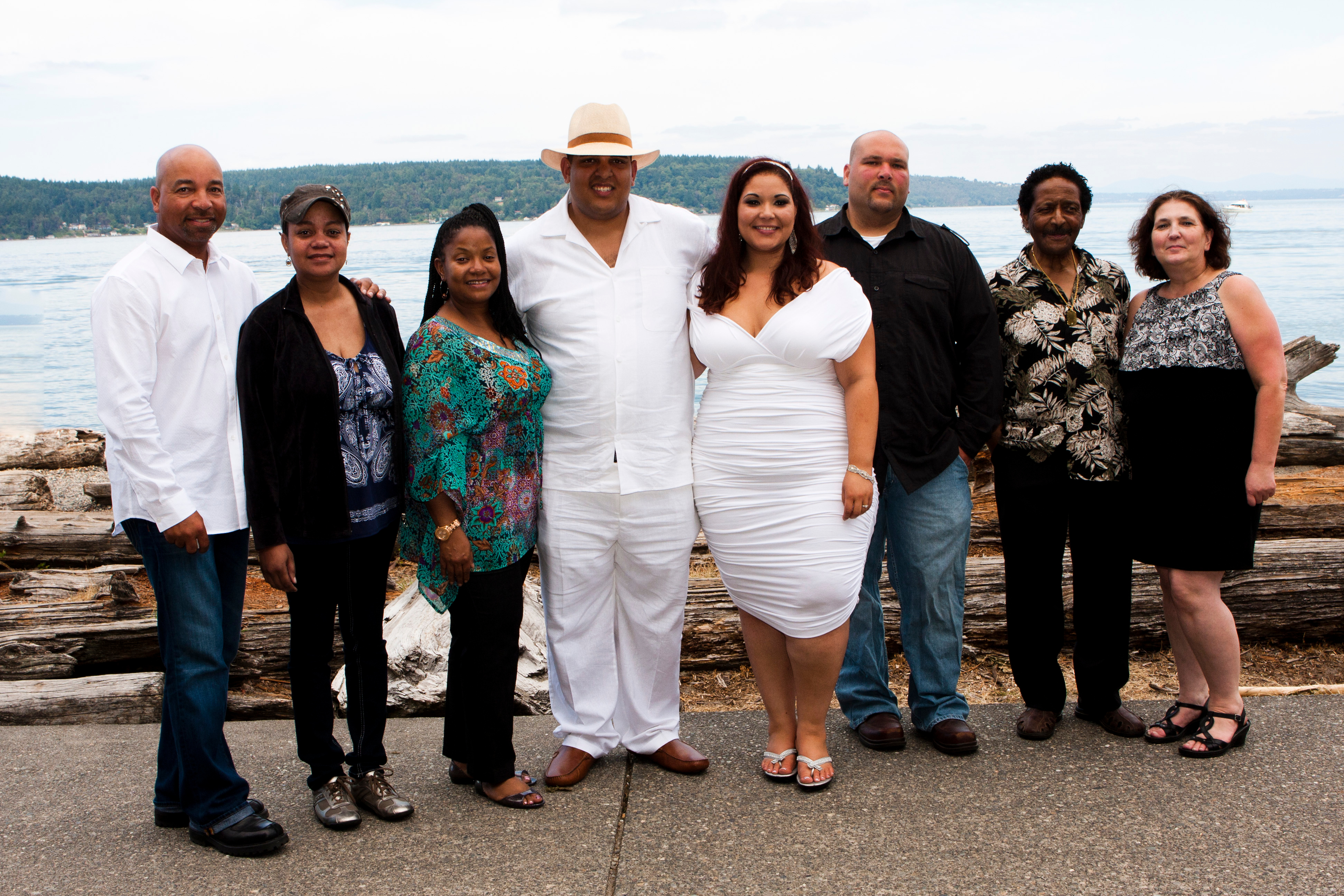In 2021, Black History Month celebrates Black community, representation, identity and diversity.

By Kristine Vargas
Business Process Manager
Black History Month serves as an open conversation where we can talk and look back to the Civil Rights Movement that affects the Black community and other blended minority groups. This conversation also gives biracial people like me a space to share our stories.
I’ve been at Crowley for almost 10 years. I’m currently based in the Seattle office working as a business process manager for the last three years. I am a mix of African American from my father’s side, as well as European, German and Irish ancestry from my mother’s side.
My husband David Vargas is from Venezuela, with African, Indigenous and Spanish ancestry. My beautiful family is comprised of two boys, ages 4 and 2. Our house is enriched by the mix of our cultures that go from stories to traditions and, of course, delicious food. We served smoked brisket, chicken, barbecue sauce made by dad using a family recipe that was passed down from his grandfather. We had empanadas and buñuelos (typical Hispanic food) at our wedding. We loved to see our friends and family exploring food from each other’s culture.

“I am a mix of African American from my father’s side, as well as European, German and Irish ancestry from my mother’s side.”
Childhood Memories vs Adulthood Reality
As a child, my biracial identity was welcomed and I was exposed to different cultures. I felt so safe that my dad’s childhood stories sounded like myths. For example, my dad experienced racism and profiling that I can’t begin to fathom. His family was the only Black family in what he calls a very prejudiced and racist town. His childhood stories from the 1940s and 1950s are about people yelling out the “N” word to him, being stared at, or his life being in danger if he dared to walk into a “white” restaurant, etc. I was born and raised in Tacoma, Wash., where there had been so much progress.
It wasn’t until I left Tacoma that I quickly realized that I had been in a bubble, and the myths were closer to reality than I thought. I remember the moment when my cultural bubble burst. I was in a mall in Downtown Seattle where a white woman approached me and asked, “What are you?!” I was stunned and really taken aback and for the first time, I stammered, “I’m … Black …” Before I could even finish my sentence, she scoffed, gave me a striking look, and walked away.
I have had multiple experiences with racism and prejudice in the decade since. Each one hurts no less than the last, and the incidents have multiplied since I’ve been with my husband. When I took his last name, people assumed I was Hispanic without even meeting me. This cultural mix influences how people look at us or address us when we’re together, creating painful situations that make me self-conscious of my identity and the choices I make. Yet it has also made me reflect on how I view others – I think we can all focus on our previous actions and internal bias to correct and learn how to do and be better.

“I have had multiple experiences with racism and prejudice in the decade since. Each one hurts no less than the last, and the incidents have multiplied since I’ve been with my husband. When I took his last name, people assumed I was Hispanic without even meeting me. This cultural mix influences how people look at us or address us when we’re together.“
Black Community’s History and Plight
Going through the kind of experiences that challenge your identity can be hard on anybody. Negative feelings about being underrepresented quickly arise. I’ve been able to face these challenges and the urge to suppress my identity to “fit in” by focusing on my faith. It has guided me to stand firm and know that I belong here, have a voice, and will not be struck down. From the recent rise in Black entrepreneurship to stepping forward to tell our stories, focusing on the Black community’s historical perseverance and the pride I feel for the culture makes me realize that I too am strong and can persevere. Remembering the Black community’s history and plight inspires me and strengthens my desire to overcome anything. It’s like paying homage to the ones who fought the good fight.
Having an ethnically mixed family has changed my perspective about the critical daily decisions I make. I take into account how my husband may be impacted, how he may be perceived by others. I’m constantly considering the effect on my boys’ future. Will they be judged for the color of their skin? Will someone look down on them because of their Black features? As parents, we focus on making the best long-term decisions we can, to ensure that safety and happiness for our family are a priority. Starting with our own behaviors and then influencing those around us.
A personal approach that I’ve developed from my life experience is becoming more assertive and speaking up. I’ve learned from different cultures and how to assimilate to them to communicate better. When I’m in complex situations, I speak up about biases not only for myself and my family, but also for others. When I do this, it sheds light on people’s unconscious, and sometimes conscious, biases which could make them, ultimately, think and perhaps inspire them to change.

“A personal approach that I’ve developed from my life experience is becoming more assertive and speaking up. I’ve learned from different cultures and how to assimilate to them to communicate better. When I’m in complex situations, I speak up about biases not only for myself and my family, but also for others.”
We All Need a Little Change
The pandemic now has resulted in worldwide changes, and one of them has been working remotely. With all the technology Crowley has been implementing and pushing forward, I’ve been able to virtually meet so many people in other offices around the world. Whether people identify with my story or not, this virtual setting has given me new opportunities to talk with them in a way I didn’t before. Technology enhances our ability to connect with each other. I think we can all contribute to people’s lives.
My recommendation is to continue finding ways to increase education and awareness around the groups of importance to you or listen to their stories to open your perspective. I do it through virtual coffee; it may be different for you.
To support minority groups, or anyone really, the best thing to do is to listen and take a genuine interest in people’s stories and don’t minimize them. Challenge yourself to be more inclusive – whether that’s on a virtual call, a conference room in the office, at the mall, anywhere. Instill that to your kids at the playground when they interact with other kids from minority groups, they are our future too.
Crowley is a privately held family- and employee-owned company providing worldwide logistics, government, marine and energy solutions since 1892. We have over 6,000 high-performing team members in 35 countries and island territories, who are diverse, encouraged, and deliver on their commitments. We are Crowley, People Who Know.